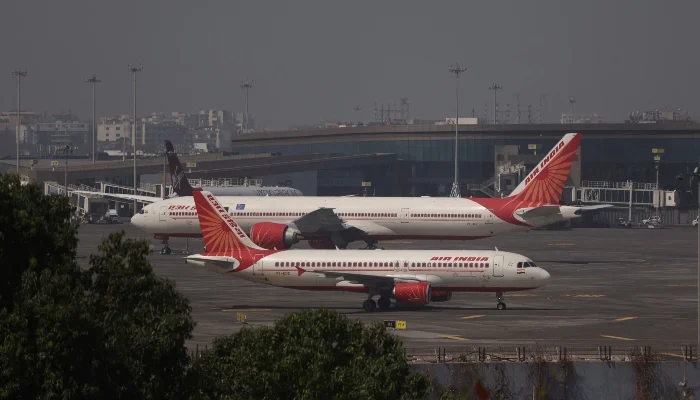Pakistan’s decision to close its airspace to Indian-owned and Indian-operated aircraft has resulted in significantly greater repercussions for India compared to the cost Pakistan itself incurs due to the closure of Indian airspace to its flight operations.
The closure of Pakistani airspace is causing widespread disruption to hundreds of Indian flights, escalating fuel and transit expenses, and compelling long-haul carriers to make costly unscheduled stops mid-route for refuelling.
Pakistan implemented this measure following a National Security Committee (NSC) meeting convened after India resorted to unsubstantiated actions in the wake of an attack in Indian Illegally Occupied Jammu and Kashmir.
The restriction, effective from April 24 to May 23, applies to both commercial and military aircraft and follows a period of heightened tensions between the two nuclear-armed neighbors.
Approximately 200 to 300 Indian flights traverse Pakistani airspace daily, many of which are long-haul routes connecting cities such as Delhi, Mumbai, Amritsar, and Ahmedabad with destinations in Europe, the Middle East, and North America.
In contrast, Pakistan had only one eastbound flight affected, which can be efficiently rerouted through China. Given Pakistan’s prior substantial reduction in its Far East operations, the impact on Pakistan is minimal to nonexistent.
Within hours of the airspace closure, several Indian flights were compelled to undertake costly mid-journey diversions: an Air India flight from Toronto to Delhi landed in Copenhagen for refuelling, while flights originating from Paris and London made unplanned stops in Abu Dhabi.
A flight from Sharjah to Amritsar was rerouted before entering Pakistani airspace, and other aircraft were forced to land in Ahmedabad to take on extra fuel.
This is not the first instance of Pakistan closing its airspace in response to Indian actions. Similar restrictions were imposed during the 1999 Kargil conflict and again in 2019 following the Pulwama attack. On both previous occasions, the consequences were more severe for India than for Pakistan.
In 2019, Pakistan had also closed its airspace to foreign airlines flying into India, a move that significantly amplified the extent of the disruption.
The airspace closure occurs amidst a rapid escalation of hostilities between India and Pakistan following the deadly attack on Indian tourists in the Baisaran Valley of Pahalgam, IIOJK. New Delhi has accused Islamabad of involvement, despite not yet providing any supporting evidence.
Pakistan has firmly rejected this allegation, denouncing it as “frivolous” and “devoid of rationality.”
The repercussions have been swift and far-reaching. India has suspended the Indus Waters Treaty, sparking outrage in Pakistan. In retaliation, both countries have expelled senior diplomatic personnel and suspended bilateral agreements.
Furthermore, special South Asian visa schemes that facilitated travel between the two nations have been halted. Trade and transit routes to and from third countries through each other’s territory have also been blocked, effectively freezing any remaining channels of engagement.
Federal Information Minister Attaullah Tarar stated that the closure of airspace is anticipated to inflict millions of dollars in losses on Indian airlines.



